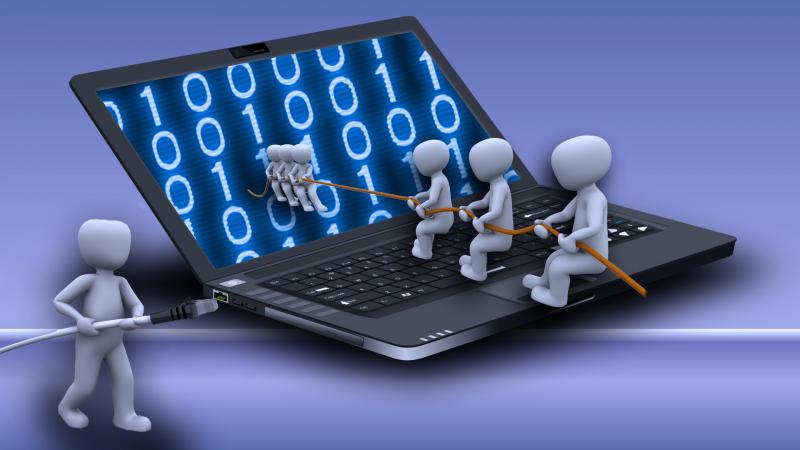
The internet has become an inextricable part of life. The recent shutdown of the internet in various parts of India has generated a lot of debate. Most commentators have criticised the shutdown, pilloried the police and raised issues relating to its desirability and legality. Reports of economic loss, myriad inconveniences to people and the perceived threat to freedom of life and expression abound. This column principally discusses the alternatives to this step, which has earned India the sobriquet of being the ‘capital of internet shutdown’ in a relatively short span of time. According to a recent India Today study, India witnessed only six Internet shutdowns in 2014, which rose to 14 in 2015. In 2016, it more than doubled to 31, and in 2017, the number reached 79. It stood at its peak in 2018, clocking 134 instances of shutdowns, and by December 15, 2019, there were as many as 93 Internet shutdowns, impacting a total of 167 areas. The rise in these numbers is shocking and the implications are not always fully understood.
First of all, shutting down the internet is a blunt instrument. By doing this, we are applying a 17th century solution to a 21st century problem. Today, if we look at the police force in India, it becomes obvious that the ability of our police force to investigate an event is constrained by skill deficit, near absence of required investments in equipment and technology, which can facilitate policing online and above all an inadequate understanding of the unintended consequences of shutting down the internet. Second, social media has two sides, a side that can be destructive and one that can be constructive.
Political and state-ordered internet shutdowns cannot be a norm in a developing society like ours that wishes to improve its ranking in the ‘ease of doing business’ index and leveraging the power of the Internet and Information & Communication Technologies (ICTs) to improve the wellbeing of society. A cost-benefit analyses of internet shutdowns is urgently called for.
If the police gets to know of certain inflammatory messages doing the rounds on WhatsApp or any other platform, it has to demonstrate the ability to track down the chain and identify the originator. If the police is enabled technologically and statutorily to find the perpetrator, there is a much lower chance they would resort to shutting down the internet. Once certain accounts have been identified as the source of rumours, hate or communal provocation, the authorities are well within their rights to request Facebook and Twitter to pull down specific posts or even shut down the accounts, instead of a general shutdown. Besides, the State has the authority to force such an ‘anonymous medium’ to either extend its help in decoding or risk being completely banned in a country or territory.
At the same time, a perpetrator has to be aware that he or she cannot, without any responsibility, just send out incendiary messages and believe that the messages have vanished into the vast unknowable world of social media. Besides, the ability to dig and determine the originator will have to be demonstrated by the police again and again. Is there any justification on the part of the State to feel helpless vis-à-vis the social media and the news channels? None.
The police stations may have to be supported with local area apps and communicate with residential associations of a particular region by circulating a truthful description of events, the presence of the police force in different localities, the expected hour of relaxation in prohibitory orders, availability of necessities, date of reopening of schools and other institutions, etc. This way, the police could become more acceptable to the silent majority, instead of letting vested interests misguide society in the absence of essential information. The French police more or less did the same thing during the terrorist attacks in November 2015.
During the Cauvery water dispute and resultant agitation in September 2016, there was no internet shutdown in Bengaluru despite the fact that it was a fairly serious issue. The Bengaluru City Police and Bengaluru Traffic Police utilised their Twitter handles to help sort the safety-related anxieties of the city’s residents. The City Police Twitter handle became the most reliable source of information to gauge the state of affairs outside. The police kept providing minute-to-minute updates on the social media platform about the situation in the city. A team of 14 Bengaluru city police handled their Twitter and Facebook accounts in a significant way and managed to dispel rumours, communicate with and reassure the people. This needs replication everywhere. The police need training to replicate some of these examples.
Political and state-ordered internet shutdowns cannot be a norm in a developing society like ours that wishes to improve its ranking in the ‘ease of doing business’ index and leveraging the power of the Internet and Information & Communication Technologies (ICTs) to improve the wellbeing of society. A cost-benefit analyses of internet shutdowns is urgently called for.
The Internet, with its global reach and ability to connect people, at times in remote and treacherous geographies and locations, is probably one of the best tools that has been invented so far. Wisdom lies in building it up, not tearing it down.
(The writer is a former Chief General Manager of the Reserve Bank of India). (Views are personal)






